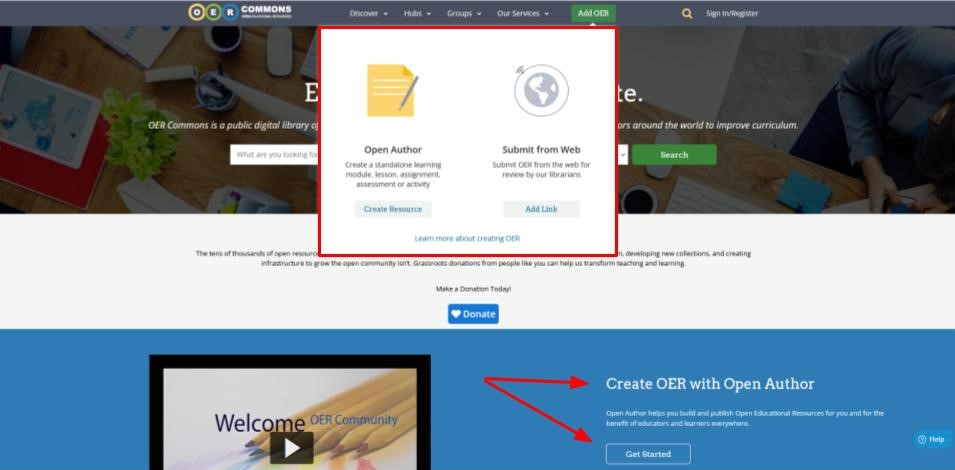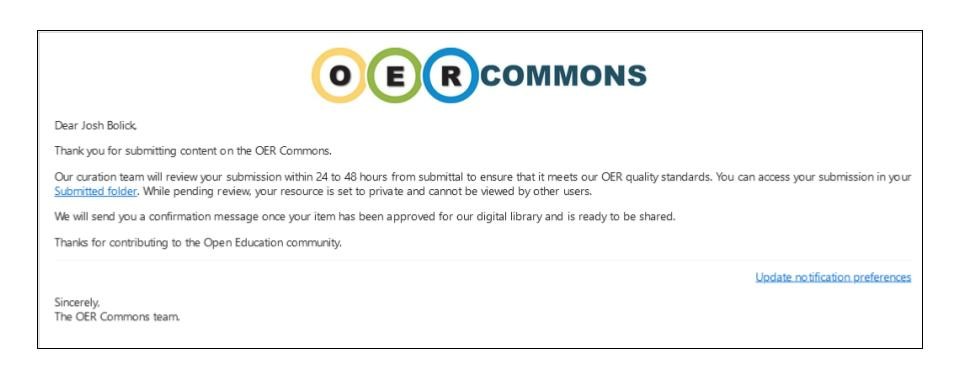This is the latest post in a series announcing resources created for the Scholarly Communication Notebook, or SCN. The SCN is a hub of open teaching and learning content on scholcomm topics that is both a complement to an open book-level introduction to scholarly communication librarianship and a disciplinary and course community for inclusively sharing models and practices. IMLS funded the SCN in 2019, permitting us to pay creators for their labor while building a solid initial collection. These works are the result of one of three calls for proposals (our first CFP was issued in fall 2020; the second in late spring ‘21, and the third in late fall 2021).
Today we’re excited to share “OER for LIS: Toolkit for Building and OER Librarian Course” (available in the SCN OER Commons Hub). This work was created by Steven Bell, who has extensive experience working to advance OER and teaching about it. As we are interested in using open materials to support LIS instruction on topics like OER, this project was right up our alley. Steven has compiled and openly licensed his complete course materials to support LIS instruction on OER. Here’s Steven to introduce OER for LIS:
The beauty of the open education community is its inclusiveness. All are welcome to join the effort to advance openness in education at all levels. One segment within the community of library workers has yet to take hold of this invitation – students enrolled in master’s degree programs in library and information science (LIS). This is through no fault of their own. In their pursuit of the degree these aspiring librarians, especially those seeking positions in college and university libraries, are rarely exposed to the world of open education and Open Education Resources (OER).
More than a few of the approximately 52 American Library Association accredited programs offer a scholarly communications course. Students may be exposed to OER concepts and resources as part of a much broader set of ideas, resources and practices. It is hardly enough to do more than whet their appetite for a deeper dive into the world of open education. That can now change at scale, if more LIS program faculty wish to take advantage of a new opportunity.
New to the Scholarly Communications Notebook is my open resource OER for LIS: Toolkit for Building an OER Librarianship Course. It is based on the Open Education Librarianship course I have taught for four years for the San Jose State University iSchool program. Designed from scratch as an asynchronous course, now any LIS instructor can adopt or modify the entire course to create a similar course within their own program. This article published in the International Journal of Open Education Resources provides detail on the origins and development of the course, as well as student responses to what the course delivers.
The Toolkit provides all the necessary materials, including a syllabus, lecture slides, video lectures, assignments, assignment rubrics, weekly discussion board topics, weekly quizzes, required and recommended readings/videos and supplement course materials such as a resource list, course success tips, instructor’s welcome video and more. While all of this could be adopted as is, my expectation is that other LIS educators will want to customize the materials to better suit their needs. Think of the Toolkit as a starting point, not unlike a blank canvas, awaiting the next owner’s personal creative touch.
To be sure, there are other paths for learning the theory and practice of open education for librarians. Both SPARC and the Open Education Network offer excellent programs for current librarians who wish to develop or enhance their OER skills and leadership capability. There are several outstanding open texts for learning both basic and advanced concepts and practices that are the domain of Open Education Librarians. None of those is quite geared to the needs of LIS program students who must learn the skills within the structure of a credit-earning course. That is a gap I sought to remedy when I first introduced this course in 2020. Now, with the introduction of this Toolkit, I invite other LIS faculty to help continue the work of closing the gap, and instead, fully bring our LIS student community into the world of open education.
About the Author
Steven Bell, associate university librarian at Temple University Libraries is a long-time advocate for open education. In addition to numerous articles and presentations on open education projects, his contributions include serving on SPARC’s Open Education Advisory Board, mentoring participants of SPARC’s Open Education Leadership Program and serving on the Executive Board of Affordable Learning Pennsylvania. Steven currently serves as an adjunct instructor for the San Jose State University iSchool, and regularly contributes blog posts to the Charleston Hub. You can learn more about Steven at stevenbell.info




![OER Commons notification email. It reads: Dear Josh Bolick, Your resource has been published and cataloged in our digital library. The means your item, [title of item], is fully accessible to all users and available for sharing across the site. Thanks for contributing to the Open Education community. Sincerely, the OER Commons team](http://lisoer.wordpress.ncsu.edu/files/2022/09/SCN-How-To-4.jpg)